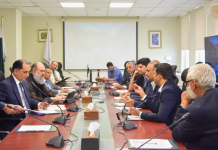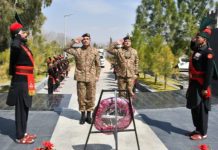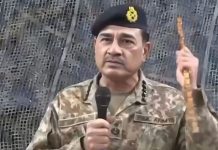WASHINGTON, JUL 09 (DNA) – Pakistan’s economy is at a critical juncture, IMF Mission Chief to Pakistan Ernesto Ramirez-Rigo said in Washington, D.C.In a staff report on the program to Pakistan the IMF noted that misaligned economic policies, including large fiscal deficits, loose monetary policy, and defense of an overvalued exchange rate, fueled consumption and short-term growth in recent years, but steadily eroded macroeconomic buffers, increased external and public debt, and depleted international reserves.
“The objective of the program is to basically achieve sustainability to accelerate growth to reduce debt so that there is more space for social spending like health education or development. And to put the country back and the road of prosperity,” said Ramirez-Rigo.
Structural weaknesses remained largely unaddressed, including a chronically weak tax administration, a difficult business environment, inefficient and loss making SOEs, and low labor productivity amid a large informal economy.
“The key elements include as the number one priority is revenue mobilisation and it is important to start increasing the amount of revenues available. We are not reducing expenditure. At the same time there is a need for more social spending and the program also includes flexible market determined exchange rate,” he said.
Without urgent policy action, economic and financial stability could be at risk, and growth prospects will be insufficient to meet the needs of a rapidly growing population.
“The IMF program acts as a catalyst. Essentially, we create a framework around which many of their international partners of Pakistan will be providing financing.
So for example multilateral development banks will all participate committing significant resources and also bilateral countries friendly countries will maintain that exposure throughout the program period,” said Ramirez-Rigo.
He denied criticism by some opponents of the IMF program that the IMF was somehow imposing an “austerity budget” that would hurt the lowest income earners in Pakistan hardest.
“No. The budget actually has no reduction in expenditure. In fact, in terms of social spending the budget includes very sizable increases. Some programs increase by as much as 80 percent. And at the same time all therefore is focus on revenue more mobilization.”











